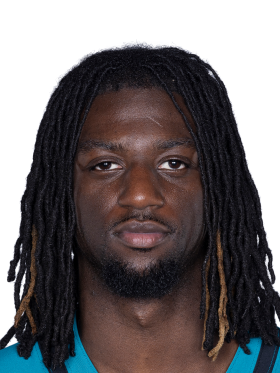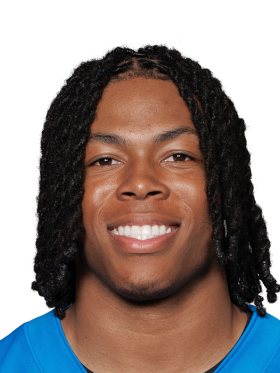

Nathan Jahnke elevated Brian Thomas Jr. to his overall WR5 after a blistering finish to 2024: at least 13 PPR points in each of the final seven contests and a 21.5-point average that trailed only Ja'Marr Chase and Puka Nacua. Thomas played 84% or more of Jacksonville’s offensive snaps in all but one of those games and led all wide receivers in slot yards per route run at 3.12. New offensive coordinator Liam Coen has historically funneled volume to slot weapons, which Jahnke believes meshes perfectly with Thomas’ skill set. First-round pick Travis Hunter will siphon some looks, but Jahnke is confident two high-end receivers can coexist given the Jaguars’ consolidated target tree. He advised drafting Thomas aggressively as a back-of-Round-1 or early Round-2 pick with legitimate top-five wideout upside.


Nathan Jahnke positioned Justin Jefferson fourth overall, citing an unmatched production profile: league-best 93.6 PFF receiving grade since 2020, 96.5 yards per game, and 2.64 yards per route run. Jefferson is the only wideout with a top-5 fantasy finish in each of the past four seasons. Jahnke did flag quarterback uncertainty after Kirk Cousins’ exit; Jefferson’s fantasy points per game were three points higher with Cousins on the field. Rookie J.J. McCarthy’s development therefore introduces more week-to-week volatility than usual, but Jahnke emphasized that Jefferson’s target dominance (28% share in 2024) and route-running efficiency are strong enough to keep him locked into Round-1 territory. Drafters should monitor McCarthy’s preseason progress but need not hesitate to take Jefferson inside the top five.


Nathan Jahnke slotted Jahmyr Gibbs third overall, arguing that the Lions’ coaching shake-up could finally unleash him. Gibbs leads all running backs in fantasy points per carry across the past two seasons and proved ceiling potential when David Montgomery was injured late in 2024, finishing as the RB1 overall during that span. Detroit replaced both its offensive coordinator and running-backs coach this offseason, a move Jahnke believes could tilt the committee toward Gibbs’ explosive skill set and elite receiving chops. If his snap share climbs from last year’s 55% range into the mid-60s, Jahnke projects Gibbs to challenge for the overall RB1 finish, making him a high-leverage early-round target.


Nathan Jahnke ranked Bijan Robinson as the top running back for 2025, noting his late-season usage spike: 70%+ snap share and at least 17 carries in eight of the Falcons’ final nine games. That workload translated to 22.4 fantasy points per game over the stretch, second only to Saquon Barkley among RBs. Jahnke pointed out that despite Robinson’s breakaway speed he logged fewer 15-plus-yard runs than other elite backs, leaving room for positive regression on explosive plays. He acknowledged two minor flags—center Drew Dalman’s departure and the continued presence of high-end backup Tyler Allgeier—but maintained that Robinson’s three-down role in an Arthur Smith–designed run-heavy offense keeps him locked in as a top-three overall pick.


Nathan Jahnke said Ja'Marr Chase should be the first player off the board in single-QB PPR leagues. Chase paced all wide receivers in total fantasy points and fantasy points per game in 2024, and he has graded inside PFF’s top-10 every season of his career. Cincinnati kept the entire passing ecosystem intact—same coaches, same quarterback room, no veteran wideout additions—so Jahnke expects only minor regression from last year’s WR1. The Bengals ranked top-5 in pass-rate over expectation for a second straight season, giving Chase one of the most pass-friendly environments in football. Jahnke concluded that the combination of elite talent and unchanged surroundings makes Chase “the safest and most reliable” 1.01 selection for 2025 drafts.


Nathan Jahnke said fantasy managers should scoop up Darnell Mooney at his 11.02 consensus ADP because the veteran projects weekly-starter upside in the Falcons’ passing game. Jahnke highlighted Mooney’s three-year, $39 million deal (with $26 million guaranteed) that locked him in as Atlanta’s X receiver and noted that his target rate rebounded even while operating behind Drake London. The move produced yardage per game matching Mooney’s career peak in Chicago and a career-high five receiving touchdowns. Jahnke pointed to Mooney’s seven games of 80+ receiving yards—where all five TDs occurred—as proof of true spike-week potential, contrasted with six sub-40-yard duds explaining his double-digit draft price. Crucially, those boom games came in the Falcons’ high-scoring close wins rather than negative game scripts, suggesting coordinated usage when the offense is humming. Jahnke concluded that modest overall improvement from Atlanta could turn those ceiling weeks into a more consistent fantasy output, making Mooney a premium late-round sleeper.





